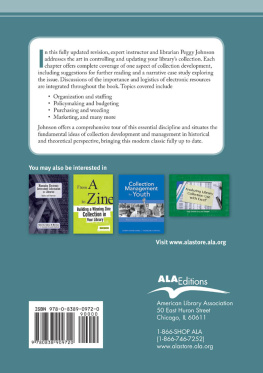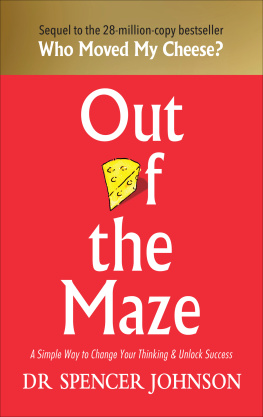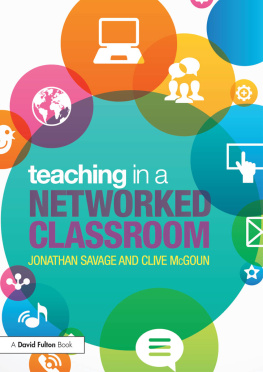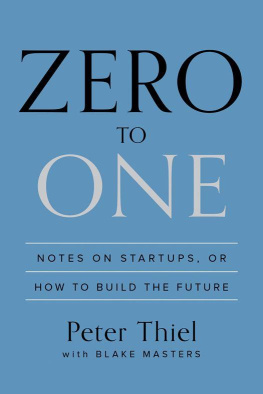Johnson - Future perfect: the case for progress in a networked age
Here you can read online Johnson - Future perfect: the case for progress in a networked age full text of the book (entire story) in english for free. Download pdf and epub, get meaning, cover and reviews about this ebook. City: USA;New York, year: 2012, publisher: Penguin Group;Riverhead Books, genre: Politics. Description of the work, (preface) as well as reviews are available. Best literature library LitArk.com created for fans of good reading and offers a wide selection of genres:
Romance novel
Science fiction
Adventure
Detective
Science
History
Home and family
Prose
Art
Politics
Computer
Non-fiction
Religion
Business
Children
Humor
Choose a favorite category and find really read worthwhile books. Enjoy immersion in the world of imagination, feel the emotions of the characters or learn something new for yourself, make an fascinating discovery.
Future perfect: the case for progress in a networked age: summary, description and annotation
We offer to read an annotation, description, summary or preface (depends on what the author of the book "Future perfect: the case for progress in a networked age" wrote himself). If you haven't found the necessary information about the book — write in the comments, we will try to find it.
Future perfect: the case for progress in a networked age — read online for free the complete book (whole text) full work
Below is the text of the book, divided by pages. System saving the place of the last page read, allows you to conveniently read the book "Future perfect: the case for progress in a networked age" online for free, without having to search again every time where you left off. Put a bookmark, and you can go to the page where you finished reading at any time.
Font size:
Interval:
Bookmark:

ALSO BY STEVEN JOHNSON
Interface Culture:
How New Technology Transforms the Way We Create and Communicate
Emergence:
The Connected Lives of Ants, Brains, Cities, and Software
Mind Wide Open:
Your Brain and the Neuroscience of Everyday Life
Everything Bad Is Good for You:
How Todays Popular Culture Is Actually Making Us Smarter
The Ghost Map:
The Story of Londons Most Terrifying Epidemicand How It Changed Science, Cities, and the Modern World
The Invention of Air:
A Story of Science, Faith, Revolution, and the Birth of America
Where Good Ideas Come From:
The Natural History of Innovation
Future Perfect
The Case for Progress in a Networked Age
Steven Johnson
RIVERHEAD BOOKS
a member of Penguin Group (USA) Inc.
New York
2012

RIVERHEAD BOOKS
Published by the Penguin Group
Penguin Group (USA) Inc., 375 Hudson Street, New York, New York 10014, USA Penguin Group (Canada), 90 Eglinton Avenue East, Suite 700, Toronto, Ontario M4P 2Y3, Canada (a division of Pearson Penguin Canada Inc.) Penguin Books Ltd, 80 Strand, London WC2R 0RL, England Penguin Ireland, 25 St Stephens Green, Dublin 2, Ireland (a division of Penguin Books Ltd) Penguin Group (Australia), 250 Camberwell Road, Camberwell, Victoria 3124, Australia (a division of Pearson Australia Group Pty Ltd) Penguin Books India Pvt Ltd, 11 Community Centre, Panchsheel Park, New Delhi110 017, India Penguin Group (NZ), 67 Apollo Drive, Rosedale, North Shore 0632, New Zealand (a division of Pearson New Zealand Ltd) Penguin Books (South Africa) (Pty) Ltd, 24 Sturdee Avenue, Rosebank, Johannesburg 2196, South Africa
Penguin Books Ltd, Registered Offices: 80 Strand, London WC2R 0RL, England
Copyright 2012 by Steven Johnson
All rights reserved. No part of this book may be reproduced, scanned, or distributed in any printed or electronic form without permission. Please do not participate in or encourage piracy of copyrighted materials in violation of the authors rights. Purchase only authorized editions.
Published simultaneously in Canada
Library of Congress Cataloging-in-Publication Data
Johnson, Steven, date.
Future perfect : the case for progress in a networked age / Steven Johnson.
p. cm.
Includes bibliographical references and index.
ISBN 978-1-59448-820-7
1. Information technologySocial aspects. 2. Progress. 3. Information networks. 4. Social networks. I. Title.
HM851.J63 2012 2012026086
303.48'33dcsd
While the author has made every effort to provide accurate telephone numbers, Internet addresses, and other contact information at the time of publication, neither the publisher nor the author assumes any responsibility for errors, or for changes that occur after publication. Further, the publisher does not have any control over and does not assume any responsibility for author or third-party websites or their content.

For Clay, Rowan, and Dean
Contents
Introduction
PROGRESS, ACTUALLY
C ommercial airplane crashes are one of the few events guaranteed a place on the front page of every national newspaper. Somewhat less common on the front page, however, is a story about a commercial airplane crash that didnt happen. But every now and then one of these non-events manages to cross the threshold into newsworthiness. One such unlikely story appeared on page one of the January 12, 2009, edition of USA Today: Airlines Go Two Years with No Fatalities, the headline proclaimed. An analysis by the paper had discovered that the U.S. commercial aviation industry had achieved a milestone unprecedented in the history of modern air travel: despite the dramatic increase in flights compared with earlier decades, not a single person had perished in a commercial air accident during the years 2007 and 2008.
A two-year stretch with zero fatalities was, statistically speaking, a remarkable feat. Only four times since 1958 had the industry managed to make it through one year without a fatal accident. But the safety record was part of a long-term trend: in the post-9/11 period, chances of dying on a commercial flight were nineteen in 1 billion; an almost 100 percent improvement over the already excellent odds of flying in the 1990s. According to MIT professor Arnold Barnett, this meant that an American child was more likely to be elected president of the United States in his or her lifetime than to die in a commercial jet flight.
The story caught my eye in part because I had long maintained that news organizations presented a misleading slant on current eventsnot the conventional slant of the Left-Right political world, but the more subtle bias of being more interested in bad news. If it bleeds, it leads might be a good strategy for selling papers, but it necessarily skews our collective sense of how well we are doing as a society. We hear about every threat or catastrophe, but the stories of genuine progress get relegated to the back pages, if they run at all.
But this USA Today article was bucking that trend of negative bias. And so, inspired by its refreshing story of progress, I decided to write a little essay about it, for a website at which I happened to be a guest contributor that week. I summarized the articles findings, and made the point that we might have fewer people suffering from fear of flying (and thus spending less time on much more dangerous highways) if the media did a better job of reminding us of these genuinely extraordinary achievements.
A more superstitious person might have worried that saying such things in public was tempting fate. In fact, when I had talked about airline safety with friends in the past, Id often been accused of just that, a criticism that I would inevitably laugh off. Surely fate had better things to do than worry about my monologues.
But within a few hours of publishing my little riff about airline safety, while I was sitting in a television studio waiting to do a book promotion, my phone began buzzing with e-mails and text messages from friends who had seen my piece. A US Airways jet had crash-landed in the icy Hudson. Look what you did, my friends said. I had tempted fate, and fate had slapped me back across the face.
By the time I actually managed to get to a television set to see the live report, it was clear that the plane had in fact survived the landing with minimal structural damage, and a significant number of survivors were clearly visible standing on the wings, waiting for the ferries and police boats that would rescue them. I penned a quick, sheepish entry promising to keep mum about air safety for a while, and mothball that piece I was working on about the planets amazing streak of avoiding species-extinguishing asteroid collisions.
Then a funnyand wonderfulthing happened. The world quickly learned that all 155 passengers and crew aboard flight 1549 had survived, with almost no serious injuries. Flight 1549 went from being a devastating rebuke to my optimism about commercial aviation to being a ringing endorsement of it. If you believed in that sort of thing, you might have said that I had tempted fate, and fate had blinked.
Of course, I had nothing to do with the safe landing of US Airways 1549. The question was, Who or what was responsible for that plane managing to lose two engines during takeoff and still keep its cargo secure? The mass media quickly offered up two primary explanations, both of which turned out to be typical interpretations of good news. First there was the hero narrative: Captain Chesley Sully Sullenberger, who had indeed brilliantly navigated his plane into the river with great poise under unthinkable pressure. And then there was the quasi-magical rhetoric that quickly became attached to the event, the Miracle on the Hudson. Those were the two options. That plane floating safely in the Hudson could be explained only by superheroes or miracles.
Font size:
Interval:
Bookmark:
Similar books «Future perfect: the case for progress in a networked age»
Look at similar books to Future perfect: the case for progress in a networked age. We have selected literature similar in name and meaning in the hope of providing readers with more options to find new, interesting, not yet read works.
Discussion, reviews of the book Future perfect: the case for progress in a networked age and just readers' own opinions. Leave your comments, write what you think about the work, its meaning or the main characters. Specify what exactly you liked and what you didn't like, and why you think so.















